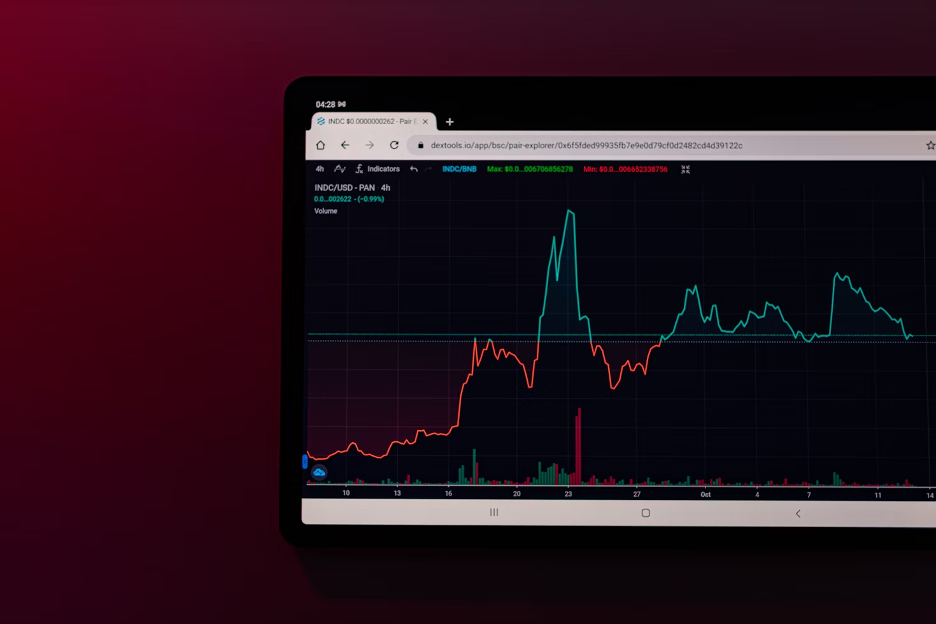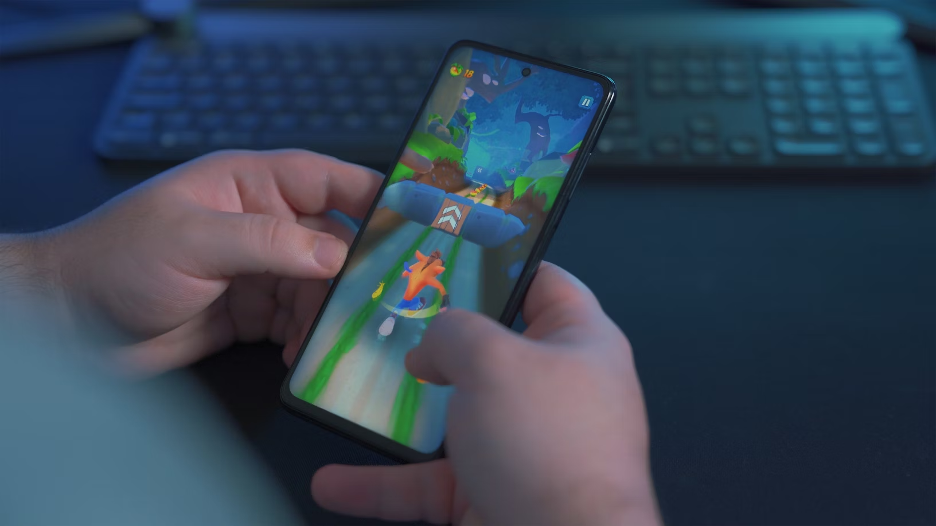ARTICLE AD BOX
Not keen on Bitcoin? Altcoins, or alternative cryptocurrencies, expose a fresh realm of possibilities, offering distinct tech and economic upsides.
As crypto evolves, altcoins provide novel investment, development, and usage avenues – from purchasing goods to fueling online games.
Let’s simplify the complexity, introducing altcoin essentials while exploring their growing impact on redefining money and digital interactions.
Cryptocurrencies in the Online Gaming Ecosystem: A Spotlight on Casinos
Online gaming is changing with the use of alternative cryptocurrencies or altcoins in casinos. Unlike Bitcoin and Ethereum, altcoins have benefits. They have lower fees, faster processing, and better privacy.
Casinos want efficiency and user privacy so altcoins are appealing. By accepting many cryptocurrencies, casinos give players the flexibility to use their preferred digital currencies.
Altcoin casinos aren’t just expanding payment options; they’re pioneering a new era of transparency and fairness in online gambling. Altcoins use blockchain technology with secure, transparent transactions.
This allows provably fair algorithms to play roulette online, guaranteeing randomness and fairness. It addresses concerns about trust and cheating, creating a safer, more reliable gaming environment.
Using altcoins also opens casinos globally by removing barriers from traditional banking and regulations. Global access with cryptocurrency security and privacy puts altcoin casinos at online gaming’s revolutionary forefront.
Navigating the Altcoin Universe

Image: Unsplash
The altcoin market, a dynamic crypto space sector, teems with thousands of other cryptocurrencies – each vying for attention and investment. Challenging Bitcoin’s dominance, altcoins not only diversify crypto but introduce innovations, enhancing the original cryptocurrency.
Offering unique features differentiating them from Bitcoin, these altcoins provide investors wider cryptocurrency market options.
Spanning diverse blockchain networks, these alternative coins deliver a multitude of functionalities and services continually shaping crypto markets. ]
Let’s immerse ourselves in this diverse universe, discovering the myriad altcoin types reshaping digital landscapes.
Defining Altcoins
You’ve heard of Bitcoin. Well, the crypto world holds many digital currencies: altcoins. Altcoins aren’t Bitcoin, proving crypto keeps evolving.
Ethereum, Ripple, Litecoin, Bitcoin Cash, Cardano, and Stellar are popular examples. Altcoins go beyond just Bitcoin alternatives though. They push crypto finances into diversity and adaptation.
Many altcoins aim to enhance Bitcoin’s original blueprint. Faster processing, tighter security, fairer protocols – improvements hoped for. Each altcoin has merit, purpose, and utility sculpting crypto’s emerging landscape.
The altcoin realm has a few key categories. Stablecoins like Tether and USD Coin anchor wild crypto swings by linking to stable fiat currencies. This steadiness appeals to cautious investors and eases transactions.
In contrast, algorithmic stablecoins like MakerDAO’s Dai are decentralized, relying on complex supply methods to stabilize prices.
Altcoin Categories
Exploring altcoins reveals diverse categories fulfilling unique roles in digital finance. Stablecoins – Tether (USDT) and USD Coin (USDC) – aim to anchor crypto’s erratic price swings by tying their value to steadier fiat money.
This gives investors stability and users reliable transaction means. On the flip side, algorithmic stablecoins such as Dai from MakerDAO ditch centralized control. Instead, advanced methods regulate supply to maintain price constancy.
Altcoins have different functions. Some are simple. Some are complex.
- Altcoins like Litecoin and Bitcoin Cash are payment tokens. They are digital cash for payments.
- Security tokens represent investments. They are digital versions of real-world assets.
- Utility tokens give access to network services. Ethereum’s ether allows using decentralized apps.
Each altcoin type adds to the cryptocurrency’s variety. They shows blockchain’s many purposes and goals.
Pioneers of the Altcoin World
Early altcoins began today’s big ecosystem. Pioneering altcoins include:
- Namecoin was first. It brought .bit domains for privacy and anti-censorship.
- XRP had new blockchain features. It expanded what was possible.
- Zcash also pushed boundaries with new blockchain abilities.
These was transformative, not just additions. They marked crypto’s new era.
From Namecoin to TRON, early altcoins showed blockchain’s power. They challenged corporate internet control. Instead, they built an open, decentralized, democratic network — owned by users.
These originals sculpted today’s huge market with thousands more bringing new tech and missions. We thank them for building this innovative space.
Bridging Virtual Economies and Real-World Value

Image: Unsplash
Blending alternative cryptocurrencies into gaming is groundbreaking. It doesn’t merely reshape digital entertainment; it forges a seamless connection linking virtual economies to tangible financial worth.
Players can earn, use, and trade inside gaming environments influencing their real finances. Altcoins embedded in-game mechanics allow converting in-game triumphs and assets directly to cryptocurrencies.
These crypto assets can be swapped for traditional money or utilize decentralized finance ecosystems. This paradigm shift blurs the boundary between gaming for enjoyment and earning livelihoods, offering gamers means to monetize time and skills within virtual realms.
Furthermore, gaming’s altcoin adoption champions a democratized financial model granting players greater control and ownership over in-game assets. Unlike traditional online games where developers reign over valuable items and currencies, blockchain-enabled games bestow true ownership upon players using non-fungible tokens and cryptocurrencies.
Not only does this enhance engagement and investment, but it nurtures a vibrant, sustainable in-game economy where assets can accrue value, trade freely, or transition across gaming platforms.
Enhancing Fairness and Security in Online Gaming
Blockchain, the revolutionary tech backed by altcoins, sets groundbreaking standards of fairness and security for online gaming. Its immutable, transparent nature records every single transaction – purchases, trades, wins – on a decentralized ledger visible to all.
This eliminates opportunities for fraudsters and cheaters who’ve plagued gaming. Players enjoy games knowing the system is designed fair, with verifiable outcomes and transparent processes. Such trust elevates the overall gaming experience, encouraging participation and investment within the ecosystem.
Moreover, blockchain’s decentralization massively reduces data breach and hacking risks, major concerns for online gaming. By decentralizing data storage and using cryptography, blockchain securely stores player info and assets, resistant to unauthorized access.
Not only protecting investments, but this security also fosters confidence in gaming platforms – assets and personal data are safeguarded. Integrating blockchain and altcoins boosts game integrity while shielding participants’ digital and financial assets.
Revolutionizing Game Development and Monetization
Cryptocurrencies transform how games develop, earn money, and creators/players value them. Blockchain tools empower developers to craft immersive experiences.
Smart contracts automate complex game economies, letting developers implement innovative gameplay rewarding players instantly with cryptocurrencies for achievements or contributions. Enhancing enjoyment while creating revenue streams beyond traditional sales/purchases.
Tokenizing in-game assets tradable outside games represents a seismic shift in monetization and valuation. Players can become stakeholders, investing in assets potentially growing in value.
This dynamic model directly links a game’s success to dedicated players’ benefits. As this approach gains traction, a new breed of games may emerge – designed not just for entertainment, but as investment/wealth-generation platforms redefining the boundaries between gaming, finance, and asset management.
Axie Infinity
A good example of an online game using different cryptocurrency is “Axie Infinity.” It’s a game based on the Ethereum blockchain. It uses its own cryptocurrencies, called Axie Infinity Shards (AXS) and Smooth Love Potion (SLP), as part of the gameplay and in-game economy.
Players collect, breed, raise, battle, and trade digital creatures known as Axies. Each Axie is unique. It’s a non-fungible token (NFT), meaning it’s a one-of-a-kind digital asset owned by the player.
Axie Infinity has a play-to-earn system. Players can earn SLP by playing, like battling others in Arena matches or doing daily quests. SLP can breed new Axies. AXS is the governance token, letting holders vote on future changes to the game. Players can trade AXS and SLP on cryptocurrency exchanges.
This lets them convert their in-game earnings to other cryptocurrencies or real money. It shows how digital economies can have real economic value. Axie Infinity has a huge, active player community worldwide. It’s pioneering a new era of gaming where playing can lead to tangible financial rewards.
The post Exploring Alternative Cryptocurrencies in Online Games appeared first on Live Bitcoin News.
.png)
 7 months ago
2
7 months ago
2








 English (US)
English (US)